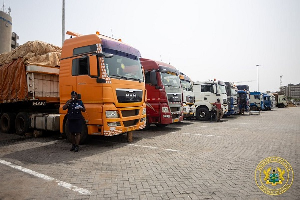Ghana has stepped up national efforts to protect and guarantee the well-being of the elderly persons against the numerous abuses they go through by virtue of their age and its related challenges.
Ghana’s endeavour to save the elderly persons from harm includes; mainstreaming ageing issues in the socio-economic development of the country in line with the New Patriotic Party’s Election 2016 manifesto.
Ms Otiko Afisah Djaba, Minister for Gender, Children and Social Protection, stated this to mark the national commemoration of the World Elderly Abuse Awareness Day in Accra yesterday.
The Gender Minister explained that the Ministry will continue to collaborate with relevant agencies to review the Bill on Aging which seeks to provide the needed legal framework to address elderly abuse.
She said, the Gender Ministry would also continue and intensify the cash transfer to older beneficiaries under Livelihood Empowerment Against Poverty (LEAP), registration of older persons unto the National Health Insurance Scheme and freedom cards to facilitate access to social services.
“We will use all available social protection strategies to ensure our elderly have a decent living. As the government machinery mandated to promote and protect the interest of the elderly, we are committed to implementing appropriate measures to ensure they live in dignity,” she said.
Ms Djaba noted that confronting the problem of ageism was a collective responsibility of the citizenry and all responsible agencies involved directly or indirectly in ensuring the well-being of older persons. “We must learn to recognise elderly abuse. And we mu st not be afraid to report it. Health and social service providers, formal and informal caregivers, as well as the general public must be encouraged to report suspected elderly abuse cases to the appropriate agencies for redress.
“We must speak out against this terrible crime in our villages and in our communities.
“As part of our commitment at ending elderly abuse and promoting the human rights of older persons, the Ministry will continue to participate in the United Nations Open Ended-Working Group on ageing to ensure there is a universal convention on the rights of elderly persons”.
June 15 is a day set aside annually to mark the World Elderly Abuse Awareness Day, which is an opportunity to create awareness on the numerous abuses elderly persons endure by virtue of their age and its related challenges.
“In addition to awareness creation on elderly abuses, the day also helps us to affirm global commitment to continuously engage in discussions to find permanent answers to the challenges.”
The Ministry of Gender therefore joins the global movement today against all forms of abuse against older persons...“we would like to take this opportunity to wish our beloved senior citizens well. Long live the elderly”.
The 2017 World Elderly Abuse Awareness Day theme explores effective means of strengthening protections against financial and material exploitation by improving understanding of this form of elderly abuse and discussing ways of ensuring the participation of older adults themselves in ending victimisation.
Global statistics indicates that people are living much longer than before but this good news also comes with effects on individual households and the nation at large.
Increase in the number of older persons may result in increasing cases of elderly abuse as well. The abuse of the elderly includes physical, sexual and psychological abuse, as well as neglect. Elderly people are also vulnerable to economic abuse, in which others make improper use of their resources.
General News of Saturday, 17 June 2017
Source: GNA













